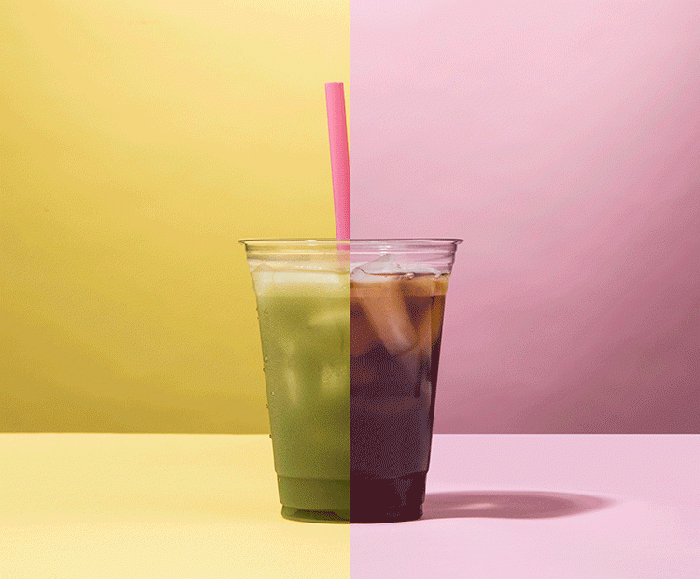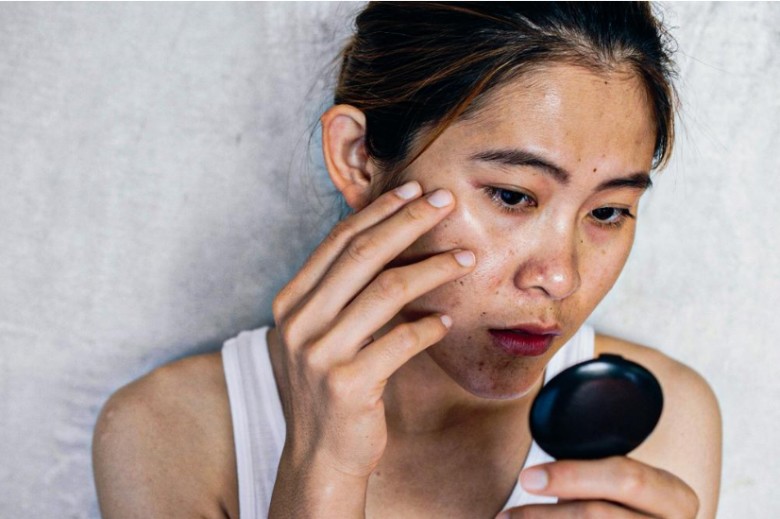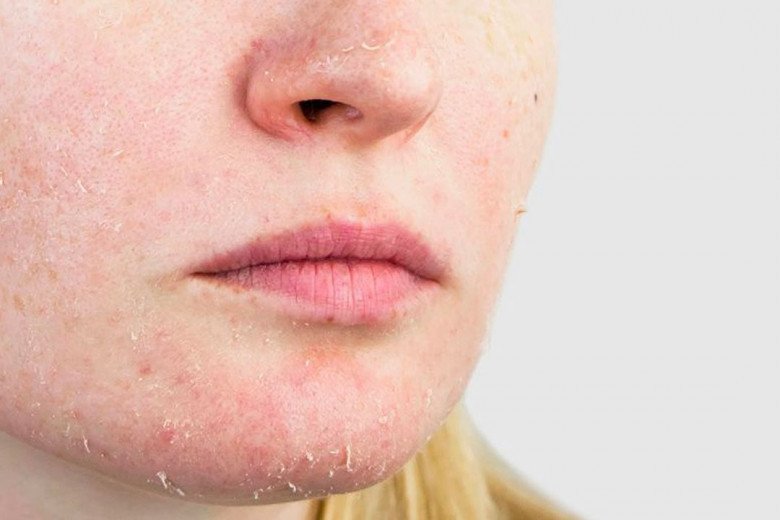Polyphenols are natural compounds found in plants, fruits, vegetables, tea, coffee, and cocoa. Polyphenols are rich in antioxidants that help protect skin cells from the damaging effects of free radicals, stimulate collagen production, and slow down visible signs of aging. While they share these benefits, tea and coffee have distinct impacts on the skin.

Which is better for youthful skin: tea or coffee?
How does green tea affect the skin?
Pros:
Tea contains catechin, a polyphenol flavonoid that safeguards your skin from oxidative stress and inflammation caused by free radicals. This prevents the breakdown of collagen and elastin fibers in the skin, which are essential for maintaining firmness, elasticity, and a youthful appearance.
Catechin in tea also soothes the skin, reducing irritation, redness, and swelling. This is especially beneficial if you have sensitive skin or are battling conditions like acne or eczema.

Tea contains antioxidants that prevent the breakdown of collagen and elastin fibers in the skin.
One of these catechins is EGCG (epigallocatechin gallate), commonly found in many anti-aging skincare formulas due to its ability to improve skin elasticity, slow down the aging process, refine skin texture, and help your skin retain moisture.
Further studies indicate that EGCG may help prevent skin cancer. It can act as a potent shield against the impact of UV radiation on the skin, such as premature aging and DNA damage.
All these compounds work in tandem to help protect your skin, lock in moisture, and prevent dehydration, which can lead to dryness and premature aging.
Tea also contains less caffeine than coffee (approximately 25–100 mg). This reduces the diuretic effect of tea and enhances its anti-inflammatory properties, better protecting your skin.
Cons:

Overindulging in tea can lead to a duller complexion.
Tea contains tannins, which can hinder iron absorption and lead to iron-deficiency anemia if consumed in large quantities over an extended period. This can not only cause fatigue and weakness but may also result in a dull, pale, and dry complexion.
As tea contains caffeine, if you are sensitive to it, you may experience side effects such as restlessness, anxiety, or insomnia. Poor sleep quality will inevitably affect your skin.
How does coffee affect the skin?
Pros:
Similar to tea, coffee is rich in phenolic acids. These antioxidants possess potent anti-aging properties, protecting the skin from UV damage, preventing collagen degradation, and reducing wrinkles.
These phenolic acids also exhibit anti-inflammatory characteristics, inhibiting the production of pro-inflammatory cytokines and enzymes. This is particularly beneficial if you suffer from acne, psoriasis, eczema, or other inflammatory skin conditions.

Coffee consumption also impacts women’s skin.
The caffeine in coffee contains beneficial compounds such as chlorogenic acid and melanoidin. These compounds enhance its antioxidant activity, making it more effective at neutralizing free radicals and keeping your skin safe.
Additionally, caffeine dilates blood vessels, increasing blood flow and improving circulation. Good circulation ensures the delivery of essential nutrients and oxygen to your skin, keeping pores clear and maintaining a vibrant and healthy complexion.
Since coffee contains more caffeine than tea (approximately 50–200 mg), it also has a stronger diuretic effect. This aids in detoxifying the body and reducing the likelihood of acne and other skin issues.
Cons:

Excessive coffee consumption can lead to dehydration and dry skin.
Given its higher caffeine content, coffee is more likely to cause restlessness, anxiety, or insomnia if you are sensitive to its effects. This can lead to the formation of wrinkles due to sleep deprivation and a dull, fatigued complexion.
While the diuretic effect of coffee is excellent for detoxifying the body, increased urine production can also result in dehydration. When dehydrated, your skin can become dry, flaky, itchy, and lose its elasticity, leading to the appearance of fine lines.
Although coffee has beneficial effects on the skin, overindulging can accelerate signs of premature aging, such as dullness, lack of radiance, or sagging skin.
Who ages slower, tea or coffee drinkers?
Both coffee and tea offer impressive advantages, along with some manageable drawbacks. The choice between tea and coffee ultimately depends on personal preference. Whether you favor tea or coffee, moderation is key to reaping their benefits.
If a choice must be made, researchers from the Beijing Union Medical College found that regular coffee drinkers may effectively reduce the risk of facial aging.
The study included over 16,000 participants, mostly aged 45 to 65, and collected data on their facial aging status. It comprehensively analyzed the causal relationship between the consumption of four types of beverages—tea, coffee, alcoholic drinks, and sugary drinks—and facial aging.
The research revealed that, among the four beverages, only coffee could effectively reduce the risk of facial aging. Coffee consumption was associated with a 15% lower likelihood of facial aging. In other words, regular coffee drinkers exhibited slower facial aging and appeared more youthful.
Should You Apply Sunscreen Before or After Serum?
Sun protection is an essential step in any skincare routine, but what about when it comes to layering on your other favorite serum? The order of application is crucial to ensuring that your skin reaps the benefits of both products. So, which one goes first, and do you really need to use both?
A skilled aesthetician or dermatologist might advise that it’s not just about which product to apply first but also understanding the unique needs of your skin.



































